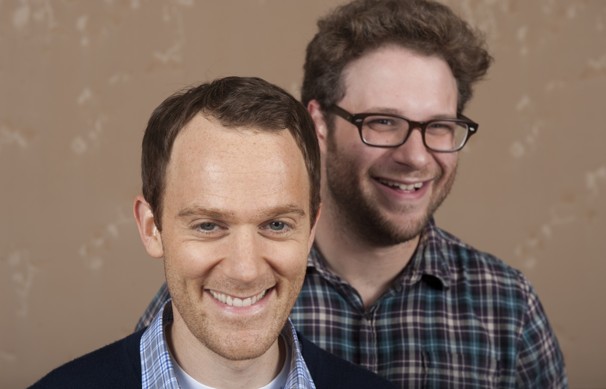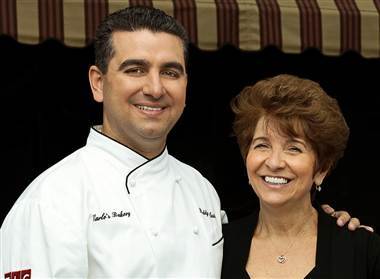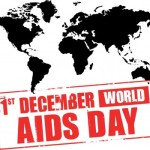Seth Rogan and Will Reiser Talk Cancer in Comedy “50/50”

Imagine you are 25 years old and your dream career is just taking off.
You start having an annoying pain in your back. “Working too hard”, you think.
But the pain just won’t go ago, and you start having hunger pangs, and dizzy spells, so you go to the doctor, and you get an answer you really didn’t expect-
YOU HAVE CANCER!
It’s a rare spinal tumor, and your chance of survival is 50/50.
How do you deal with this?
Writing a movie comedy is probably not your list of things to do…
But it was on the list of screenwriter Will Reiser. His new movie “50/50” which opens this weekend, is loosely based on his own personal experience with cancer at the age of 25. The movie stars Joseph Gordon-Levitt and Seth Rogan.
Getting the Diagnosis
Rogan became friends with Reiser in 2005, when they were both on the writing team for Sascha Baron Cohen’s Da Ali G Show. It was there that Reiser received the news that his back pain and gaunt appearance was due to a rare spinal tumor called a neurofibrosarcoma-schwanomma. He had to undergo difficult back surgery to remove the large tumor. Now six years out, and years of physical therapy later, Reiser finally feels like he is “back to normal.”
Seth Rogen was one of the friends who supported him during this difficult time. And they did it with humor. According to Reiser:
“I think that pretty much from the second day after I was diagnosed, I was making jokes because it was the only way I knew to make everybody feel normal and comfortable with the situation. The last thing I wanted was for everyone to just start treating me differently — which, unfortunately, they did. But that just happens when you go through something like this.”
Reiser and Rogan began to think about writing a movie about Will’s experience. As Reiser told Fresh Air’s Terry Gross:
We wanted to do a parody of The Bucket List where you do really absurd and ridiculous things…Like skydiving with hookers and things that were completely outlandish. But it was a joke, and it was sort of a coping mechanism for me at the time.
Instead, they wrote a story which doesn’t make fun of cancer, but rather, looks for humor in the situation, especially in the reactions of people who are family and friends of the cancer patient.
50/50 explores some tough subjects such as:
- How a young adult, at a time in his life where he is first establishing his independence, gets diagnosed with a potentially fatal disease and now has to deal with his parents’ urges to baby him.
- How friends (and significant others) react to a situation they don’t expect someone their age to have to deal with.
- Whether trying to use your cancer as a “chick magnet” really works.
Laughter is the Best Medicine
Did you know that this concept originated in the Bible, Proverbs 17:22, which says “A cheerful heart is good medicine”?
There is increasing medical evidence that humor can have a positive effect for cancer patients, as well as for general health:
- Laughter relaxes the whole body. A good, hearty laugh relieves physical tension and stress, leaving your muscles relaxed for up to 45 minutes after.
- Laughter boosts the immune system. Laughter decreases stress hormones and increases immune cells and infection-fighting antibodies, thus improving your resistance to disease.
- Laughter triggers the release of endorphins, the body’s natural feel-good chemicals. Endorphins promote an overall sense of well-being and can even temporarily relieve pain.
- Laughter protects the heart. Laughter improves the function of blood vessels and increases blood flow, which can help protect you against a heart attack and other cardiovascular problems.
Reacting in Toronto
50/50 premiered at the Toronto Film Festival on September 12, 2011, to primarily positive reviews. For Will Reiser, the most rewarding feedback has come from cancer survivors:
That’s the most gratifying part of making this is that so many people connect to it and so many people understand that that humor does exist and there are highs and there are lows, and sometimes the only thing you can do is just laugh and make fun of the situation… Ultimately, ..there’s no ‘right way’ to deal with [the disease].
I look forward to seeing this movie, and will report back to you after I’ve seen it.
Have you had to deal with a serious illness like cancer? Did laughter/humor play a role in your recovery? Should more healthcare providers use humor as part of the treatment regimen?
























0 comments